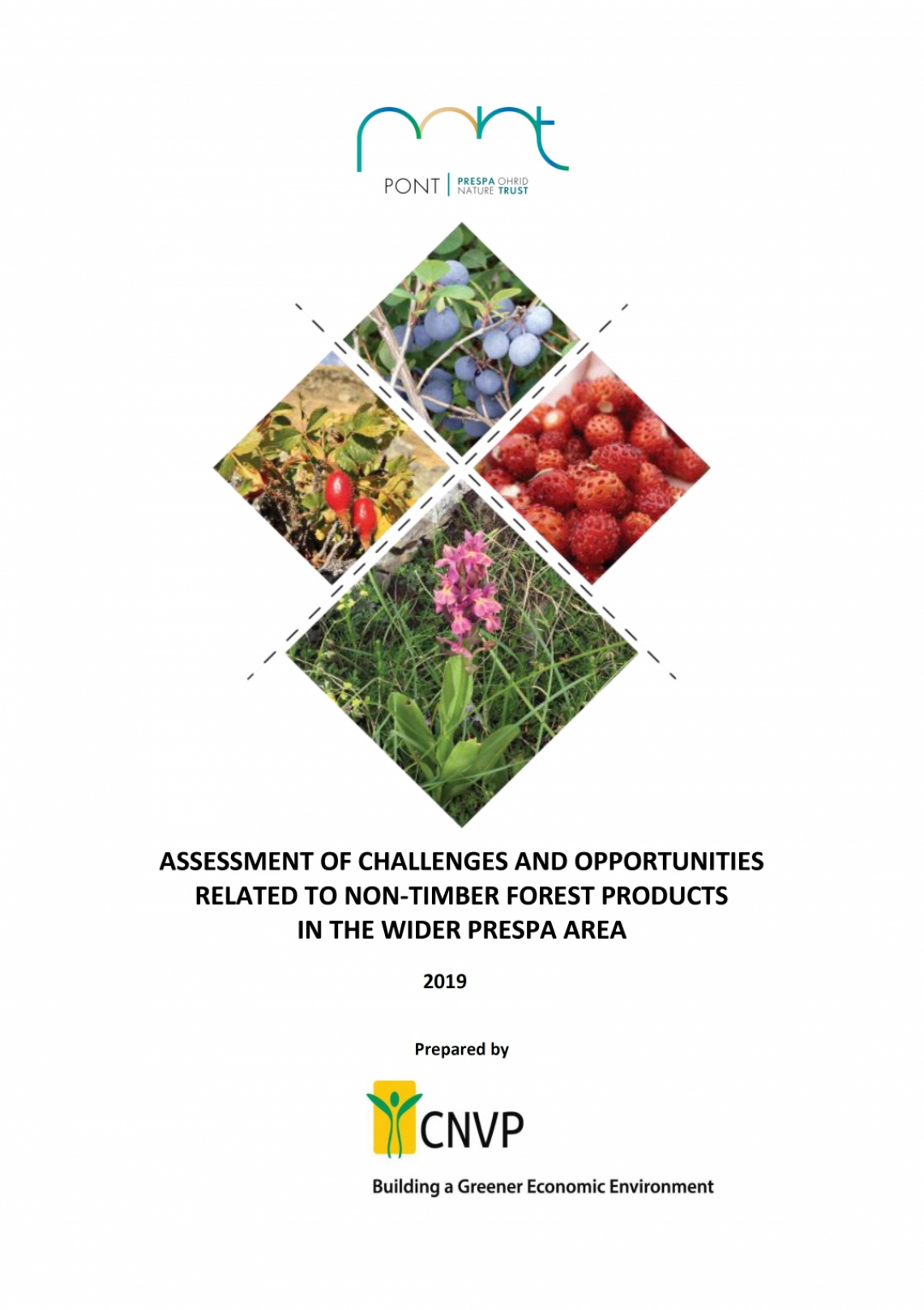News
Report for assessment of the opportunities and challenges related to NTFPs in the Wider Prespa Area

CNVP was engaged by PONT to prepare a report that assesses the opportunities and challenges related to non-timber forest products (NTFPs) in the Wider Prespa Area.
Contents of the report
Fully endorsed by PONT, the report sets out a number of recommendations related to the collection, production, processing and marketing of NTFPs, taking into account input from a number of key stakeholders in Albania and North Macedonia.
The importance of continued support
The report stresses the importance of sustained support from donors, governments and stakeholders in order to bring about systematic change in understanding of and investment in the NTFPs value chain.
While previous efforts have brought about some improvements, capacities in the Wider Prespa Area are still inadequate.
Sustained support and education is needed, particularly at the local level, addressing sustainable use of local resources, entrepreneurship skills, product development, marketing, and business planning etc. These efforts should focus on identifying and promoting leaders in the Wider Prespa Area that are able to grow from simply harvesting wild products into a financially viable business.
In the interest of diversity, support to local entrepreneurs should prioritize young people and women.
Report recommendations
The specific recommendations set out in the report include support for establishing associations and cooperatives of NTFP collectors that can then be assisted in building adequate storage and post-harvest processing facilities and improving the organization of the buyout.
With respect to the cultivation of NTFPs, the report recommends facilitating the involvement of women, developing the capacity to apply for subsidies from the state funds, and training on cropping and managing plantations of wild species, in particular of aromatic and medicinal plants.
Regarding the processing of NTFPs, the report stresses the need for training on post harvesting, processing and packaging, in order to improve product quality, consistency and longevity. This should be complemented by training on entrepreneurship and innovative product development, and how to transform non-formal businesses into a company or an appropriate legal form of organization with embedded sustainable standards.
The marketing related interventions proposed in the report include improving the understanding of end-consumer and buyer demands and expectations among harvesters and producers. This includes the establishment of NTFP clusters, branding of selected NTFPs, direct marketing of NTFP products, and the organization of NTFP promotional events. Linking producers with traders and buyers of NTFPs should be encouraged by organizing buyer-seller meetings.
The report also recommends a series of actions to strengthen the capacity of relevant institutions, such as training for police, forestry police, relevant inspectorates, and rangers at protected areas, with a focus on biodiversity conservation and community rights.
Support is also recommended to strengthen the link between the management objectives of the Protected Areas in the Wider Prespa Area with the sustainable use of NTFPs, in terms of management zoning, identification of harvesting quotas, monitoring of NTFP harvesting, and plantation production of medicinal and aromatic plants. Support for advocacy actions to develop national policies is also recommended with the aim of adequately addressing the needs of rural people related to the NTFP sector.
Making a real difference
Some past initiatives have led to real progress in the sustainable use of NTFPs and its contribution to local livelihoods.
For instance, a group of women from the village of Gollomboc in Albania has successfully established plantations of mountain tea, an endemic species found in the Wider Prespa Area, and sell their products to significantly improve their income and thus their family welfare.
Similarly, a group of women from the villages in North Macedonia are successfully cooperating through an informal organization that provides home-made catering to clients.
The full report is available here:
